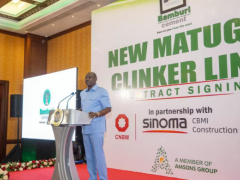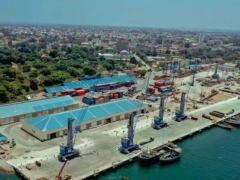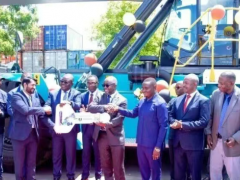If you want prosperity, you must first build roads It is expected that by 2030, Africa will have a market of 1.7 billion people, and China will dominate the foreign direct investment (FDI) pattern on the African continent in the next decade. The China Africa strategic partnership has witnessed a surge in investment in many industries in Africa, including construction, power generation, finance, agriculture, road and railway networks, biofuels, and telecommunications. In fact, China has been Africa's largest trading partner for the past 12 years. According to reports, it is interesting that 90% of Chinese companies investing in Africa are private enterprises that are suitable for the middle class in Africa.
The development, innovation, and entrepreneurial spirit of local laws are the driving forces for sustained economic growth in Africa. The latest developments in trademark law also ensure consistency between international treaties between African countries and developed countries. Some highlights include:
Ethiopia has implemented a new registration system. This system has replaced the outdated warning notification system. Applicants are now allowed to submit and review trademark applications at the Trademark Registry.
Malawi's outdated trademark law has been modernized, including the introduction of service trademarks. In addition, the provisions of the Banjul Protocol (governing ARIPO trademarks) have also been incorporated into national law.
A new intellectual property code has been passed, clarifying procedural and administrative issues, and adopting the Banjul Protocol (ARIPO).
Namibia has joined the ARIPO and Madrid International Trademark Registration System.
Nigeria has launched its comprehensive intellectual property management system, aimed at automating the processing of trademarks, patents, and industrial designs.
Somalia has legislated to protect trademarks in the country for the first time in many years.
Other African countries such as Zambia and Mauritius are also preparing to develop modern trademark laws.
Although a few countries are still lagging behind in modernization, it is possible to protect and enforce trademark rights throughout the entire African continent (excluding Eritrea and South Sudan). However, before carrying out filing projects in Africa, it is recommended to prioritize appropriate local, regional, and/or international filing systems to determine filing strategies, while also considering any industry-specific issues and risks related to so-called "first to file" registration systems, counterfeit hotspots, and high litigation costs in jurisdictions.
In addition to the national application system, there are two regional systems available for trademark protection in Africa:
ARIPO
The African Regional Intellectual Property Organization (ARIPO) is a government organization that collaborates with African countries in intellectual property affairs. At present, 11 out of the 19 countries that are members of ARIPO have already adopted the Trademark Protocol (Banjul Protocol), which allows for the recognition of applications under the ARIPO trademark procedure in those countries. These countries are: Botswana, Eswatini, Lesotho, Liberia, Malawi, Mozambique, Namibia, Sao Tome and Principe, Tanzania (mainland), Uganda and Zimbabwe. Six of them (Botswana, Malawi, Mozambique, Namibia, Sao Tome and Principe and Zimbabwe) have legislated to recognize and implement ARIPO registration under their legal system. The remaining members have not yet done so. Therefore, using the ARIPO application system is not without risks, and registering locally can still provide a safer option.
OAPI
The African Intellectual Property Organization (OAPI) is a coalition of 17 primarily French speaking countries, namely: Benin, Burkina Faso, Cameroon, Central African Republic, Chad, Comoros, Congo, Equatorial Guinea, Gabon, Guinea, Guinea Bissau, Ivory Coast, Mali, Mauritania, Niger, Senegal, and Togo. OAPI has a central registration office in Cameroon, which facilitates the centralized submission of intellectual property applications, including trademarks. OAPI applications automatically cover all member states, as member states must abandon their existing intellectual property laws in order to become members. Therefore, applicants cannot submit separate national applications in any OAPI member country. However, although objections are handled through OAPI's office in Cameroon, disputed matters such as infringement are handled by the courts of the member states involved in the conflict.
In some African countries, such as Angola and Zambia, trademark rights must be generated through registration rather than through use. In other words, common law rights are not recognized in these jurisdictions, and the first entity to submit a trademark application will be protected, regardless of whether another entity used the trademark before the filing date of the first entity. Although it is always recommended to apply for trademark registration in a timely manner in any country/region where the trademark owner operates, this must be done in the "first to submit" country/region. If a third party decides to register a trademark first without first registering, the trademark owner may lose remedies.
Therefore, it is crucial for companies wishing to operate on the African continent to prioritize obtaining strategic advice on local, regional, and international application systems in Africa, as well as identifying the risks of "first to submit" system countries. In addition, it is recommended to keep in mind other considerations, such as which countries have expensive and/or lengthy litigation procedures, or counterfeit hotspots. We will provide more information about these issues in another article.








